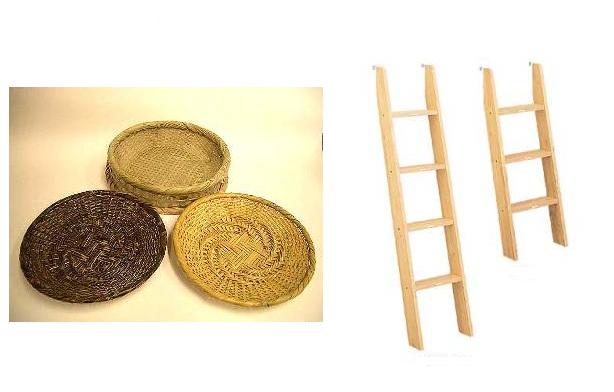みなさん、おはようございます!
(Good morning everyone!)
今日は、いよいよ2013年最後の日ですね。
きょうは、いよいよ 2013ねん さいごの ひ ですね。
(Today is finally the last day of 2013...)
31日の夜、日本では、そばを食べる家が多いです。
31にちの よる、にほんでは、そばを たべる いえが おおいです。
(In Japan, many family have soba noodle for the dinner on 31st)
そばは、うどんと比べて切れやすいので、
そばは、うどんと くらべて きれやすいので、
(Soba noodle is easily bitten off comparing to udon noodle, so)
その年の苦労を断ち切る意味と、
そのとしの くろうを たちきる いみと
(we eat soba noodle wishing we can cut off all the troubles happend in the year,)
細く長いので、
ほそく ながいので、
(and because soba noodle is thin and long,)
細く長く生きることを願う意味があります。
ほそく ながく いきることを ねがう いみが あります。
(we wish our life to be thin and long by eating soba noodle.)
そして、31日の夜、人気があるテレビ番組は、
そして、31にちの よる、にんきが ある てれびばんぐみは、
(Also, the popular TV program on this evening is,)
紅白歌合戦です。
こうはく うた がっせん です。
(Red White Singing Contest)
女性歌手たちの紅組と
じょせいかしゅたちの あかぐみと
(Female singers form Red-team, and)
男性歌手たちの白組が
だんせいかしゅたちの しろぐみが
(male singers form White-team)
それぞれの歌やダンスを披露します。
それぞれの うたや ダンスを ひろうします。
(and they perform their music and dance one by one.)
今年の注目は・・・。
ことしの ちゅうもくは・・・。
(The ones attracting peoples' attention this year are...)
ももいろクローバーZ
(momoiro-kuroobaa-z)
公園で無料ライブをしていて、メジャーになりました。
こうえんで むりょうらいぶを していて めじゃーに なりました。
(They started from a live in a park and became this much famous.)
ゴールデンボンバー
(gooruden bonbaa)
楽器を持っていますが、演奏していないエアーバンドです。
がっきを もっていますが、 えんそう していない えあーばんどです。
(They have instruments but they never play. They are the air-band)
Perfume
ヨーロッパツアーが大成功でした。
よーろっぱつあーが だいせいこうでした。
(Their Europe Tour was very successful.)
嵐
あらし
日本で今最も人気のあるアイドルです。
にほんで、いま もっとも にんきのある あいどるです。
(They are the most popular boys group among teens now in Japan.)
紅白を見る人も見ない人も、素敵な大晦日をお過ごしください!
こうはくを みる ひとも みない ひとも、すてきな おおみそかを おすごしください!!
(Whether you watch this program or not,
please have a wonderful new year's eve...)
written by Ran






















.jpg)
.jpg)
.jpg)
.jpg)
.jpg)
.jpg)













